Address
304 North Cardinal
St. Dorchester Center, MA 02124
Work Hours
Monday to Friday: 7AM - 7PM
Weekend: 10AM - 5PM
Address
304 North Cardinal
St. Dorchester Center, MA 02124
Work Hours
Monday to Friday: 7AM - 7PM
Weekend: 10AM - 5PM
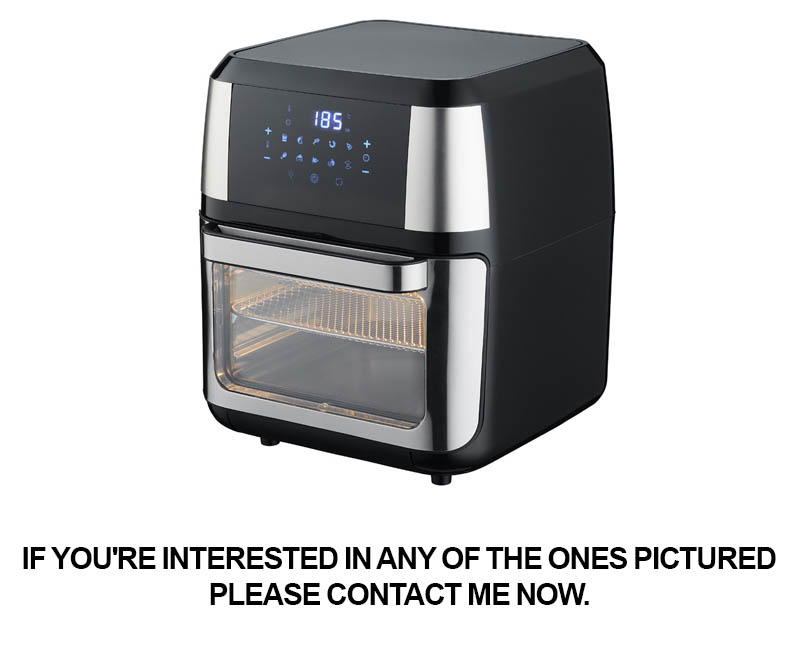
As the world of kitchen appliances continues to evolve, air fryers have emerged as a revolutionary trend, offering healthier cooking options without sacrificing flavor. In this ever-growing market, understanding the intricacies of OEM air fryer production and mold making services is crucial for businesses looking to capitalize on this trend. Let’s delve into the latest trends in air fryer technology, the benefits of partnering with a company that offers mold making services, and how to choose the right OEM air fryer manufacturer to ensure a successful venture. Additionally, we’ll explore the future outlook for the air fryer market and mold making services, highlighting the data-driven strategies shaping this dynamic industry.
The Air Fryer Revolution: A Game-Changer in Kitchen Appliances
In recent years, the kitchen has seen a surge in popularity for a small, sleek appliance that promises healthier cooking without sacrificing flavor—air fryers. Once a niche product, these devices have now become a staple in many households, transforming the way we approach cooking and snacking.
The concept of air frying is simple yet revolutionary. By circulating hot air around food, air fryers mimic the crispy texture of deep-frying without the excessive oil. This not only makes for a lighter, healthier meal but also reduces the cleanup time—two factors that have made air fryers increasingly appealing.
One of the key drivers behind the rise of air fryers is the growing health consciousness among consumers. With the rise of obesity and heart disease, people are looking for alternatives to traditional frying methods. Air fryers offer a solution that allows for deliciously crispy food while significantly cutting down on calories and fat content.
As the market for air fryers continues to expand, manufacturers are stepping up their game with innovative features. Smart technology, such as programmable timers and temperature controls, has become standard, making air fryers more versatile than ever. They can now handle a variety of cooking tasks, from roasting vegetables to baking desserts, all while consuming less energy than traditional ovens.
The convenience factor cannot be overstated. Air fryers are compact and easy to store, making them perfect for small kitchens or those with limited counter space. Their quick cooking times also mean less waiting for a meal, which is a significant draw for busy individuals and families.
Another reason for the air fryer’s rise to kitchen fame is its versatility. Unlike traditional ovens or deep fryers, air fryers can be used for a wide range of recipes. Whether you’re looking to enjoy a crispy French fry or a perfectly roasted chicken, an air fryer can do it all. This has opened up a whole new world of culinary possibilities for home cooks who were once confined to the limitations of their appliances.
The market for air fryers is also being fueled by the rise of social media and influencers. With the ability to share their cooking adventures on platforms like Instagram and TikTok, influencers are driving interest in air fryers and showcasing the endless recipes that can be prepared using this versatile appliance.
Moreover, the environmental impact of air frying cannot be ignored. By reducing the need for oil and promoting healthier cooking habits, air fryers contribute to a more sustainable lifestyle. As consumers become more environmentally conscious, the eco-friendly aspect of air fryers is adding to their appeal.
Innovation in design has also played a crucial role in the air fryer’s popularity. Modern air fryers come with features like non-stick interiors, easy-to-clean components, and even accessories for baking and grilling. These innovations make the cooking process smoother and more enjoyable, further propelling the air fryer into the mainstream.
Retailers have also jumped on board, offering a variety of air fryers at different price points. From budget-friendly models to high-end, feature-packed appliances, there’s an air fryer to suit every budget and need. This has made the appliance accessible to a wide audience, contributing to its rapid growth in the market.
In conclusion, the rise of air fryers as a game-changer in kitchen appliances is a testament to the power of innovation and consumer demand. As technology continues to evolve and more people seek healthier, convenient, and eco-friendly cooking solutions, air fryers are poised to remain a staple in modern kitchens for years to come.

In recent years, the OEM air fryer market has seen a surge in demand, transforming the landscape of kitchen appliances. As a result, understanding this market’s intricacies is crucial for anyone looking to capitalize on this trend.
Manufacturers are increasingly seeking original equipment manufacturers (OEMs) to produce custom air fryers that cater to their specific needs and target markets. These OEMs play a pivotal role in bringing innovative designs and features to the forefront, ensuring that each air fryer meets the demands of consumers worldwide.
The OEM air fryer market is marked by its rapid evolution. Consumers are no longer satisfied with standard appliances; they are looking for high-tech, energy-efficient, and multifunctional devices. This shift has led OEMs to invest heavily in research and development, pushing the boundaries of what an air fryer can offer.
One of the key factors driving the OEM air fryer market is the emphasis on health and wellness. As people become more conscious of their diets, they are turning to air fryers as a healthier alternative to traditional deep-fat frying. OEMs are responding by creating air fryers that use less oil and provide healthier cooking options.
The competition in the OEM air fryer market is fierce, with numerous players vying for a piece of the pie. This competition has sparked a wave of innovation, with companies striving to offer unique features such as adjustable temperature settings, programmable cooking times, and even Wi-Fi connectivity. These advancements not only enhance the user experience but also set one brand apart from another.
Another critical aspect of the OEM air fryer market is the customization available to manufacturers. This allows them to tailor the air fryer’s design, size, and functionality to match their brand identity and the preferences of their target audience. Whether it’s for a premium brand or a budget-friendly option, OEMs can cater to a wide range of needs.
Regulatory compliance is also a significant factor in the OEM air fryer market. With stricter safety and environmental standards, OEMs must ensure that their products meet these requirements. This means investing in quality control measures and staying abreast of any changes in regulations that could impact their operations.
The global nature of the OEM air fryer market is another interesting point. Companies are not limited to selling within their domestic markets; they can tap into international markets, bringing their innovative products to consumers worldwide. This global reach requires a keen understanding of different cultural preferences and culinary traditions, which OEMs must navigate to succeed.
In the realm of distribution, the OEM air fryer market has seen a shift towards e-commerce. Online sales platforms have become a popular channel for reaching consumers, with manufacturers and retailers leveraging the internet to showcase their products and facilitate purchases. This digital transformation has opened up new opportunities for growth and expanded the market’s reach.
The supply chain is another area that OEM air fryer manufacturers must consider. With the need for rapid production and delivery, maintaining a robust and efficient supply chain is essential. This involves managing relationships with raw material suppliers, as well as coordinating logistics to ensure timely and cost-effective shipping.
Lastly, the market for OEM air fryers is highly dynamic, with trends and consumer preferences constantly changing. OEMs must stay agile and adaptable, continually updating their products to reflect the latest market trends and consumer demands. This requires a deep understanding of the market, strong relationships with customers, and a willingness to invest in continuous improvement.
In summary, the OEM air fryer market is a complex and rapidly evolving sector that requires a strategic approach to succeed. By focusing on innovation, customization, regulatory compliance, and market adaptation, OEMs can position themselves to meet the growing demand for air fryers and maintain a competitive edge in this dynamic industry.
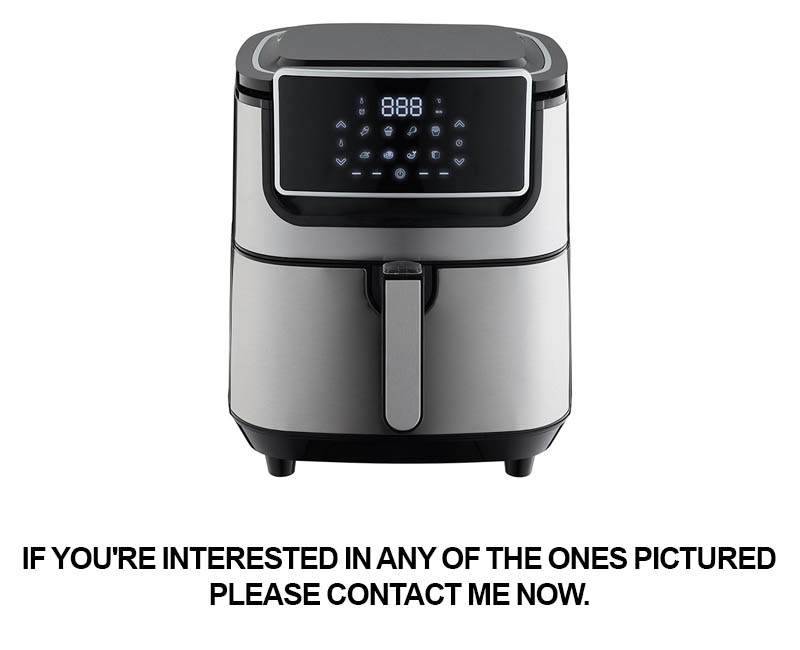
In the realm of kitchen appliance manufacturing, the role of mold making service is pivotal, especially when it comes to the production of air fryers. These specialized molds are the backbone of the manufacturing process, shaping the future of countertop cooking. Let’s delve into why this service is so crucial.
Molds are the masterminds behind the creation of the air fryer’s intricate design. They are the tools that bring the concept of a compact, efficient cooking appliance to life. Each air fryer model, from the smallest countertop appliance to the largest commercial unit, is meticulously crafted through molds that ensure precision and consistency in every aspect of the product.
The complexity of air fryer molds is a testament to the technology’s evolution. These molds are not just simple forms; they are precision-engineered to create the perfect channels for air circulation, ensuring that the food cooks evenly and achieves a crispy texture without the added fat. The intricacy of these molds reflects the sophisticated engineering behind the technology.
The quality of the mold directly impacts the quality of the air fryer. A well-crafted mold will result in a product that is not only functional but also durable. The precision of the mold’s design affects the structural integrity of the air fryer, including the distribution of heat, the longevity of the appliance, and the overall user experience. It’s a delicate balance that mold making services must master.
The mold-making process itself is a high-tech endeavor. It involves the use of advanced CAD (Computer-Aided Design) and CAM (Computer-Aided Manufacturing) software to design and create molds that are both efficient and cost-effective. These tools enable designers to simulate the production process, making adjustments and optimizations before a single piece of metal or plastic is cut.
Once the mold is designed, it must be produced with exceptional accuracy. The materials used can range from high-grade steel to advanced plastics, each chosen for its ability to withstand the demands of high-temperature cooking and repetitive use. The mold must be able to hold its shape over time, ensuring that every air fryer produced is uniform and meets the manufacturer’s quality standards.
Another critical aspect of mold making service is the ability to customize. Different brands and markets may require specific features or sizes, and mold making services must be able to adapt quickly to these demands. This flexibility is essential in a competitive market where innovation is key to staying ahead.
The cost-effectiveness of mold making is also a significant factor. A well-designed mold can be used for years, producing thousands or even millions of air fryers. The initial investment in a mold can be substantial, but the long-term savings in production costs and the potential for higher profit margins make it a sound business decision.
Moreover, the mold-making service must ensure that the molds are easy to maintain and repair. Over time, molds can wear down or become damaged, which could compromise the quality of the air fryers being produced. A reliable mold-making service will provide maintenance and repair services to extend the life of the molds and minimize downtime in production.
In the world of OEM air fryer production, the mold making service is not just a supplier but a strategic partner. It is through this collaboration that manufacturers can bring new and improved air fryer models to market. The success of these products hinges on the quality of the molds, which in turn depends on the expertise and commitment of the mold-making service.
Lastly, the mold-making service must stay abreast of technological advancements. The air fryer market is continually evolving, with new materials and manufacturing techniques emerging. A mold-making service that invests in research and development is better equipped to anticipate future trends and adapt its processes accordingly.
In conclusion, the mold-making service is integral to the production of air fryers. It is the unsung hero that shapes the product, influences its performance, and impacts the success of the brand. The meticulous craftsmanship and strategic partnership offered by mold-making services are essential for the continued growth and innovation in the air fryer market.
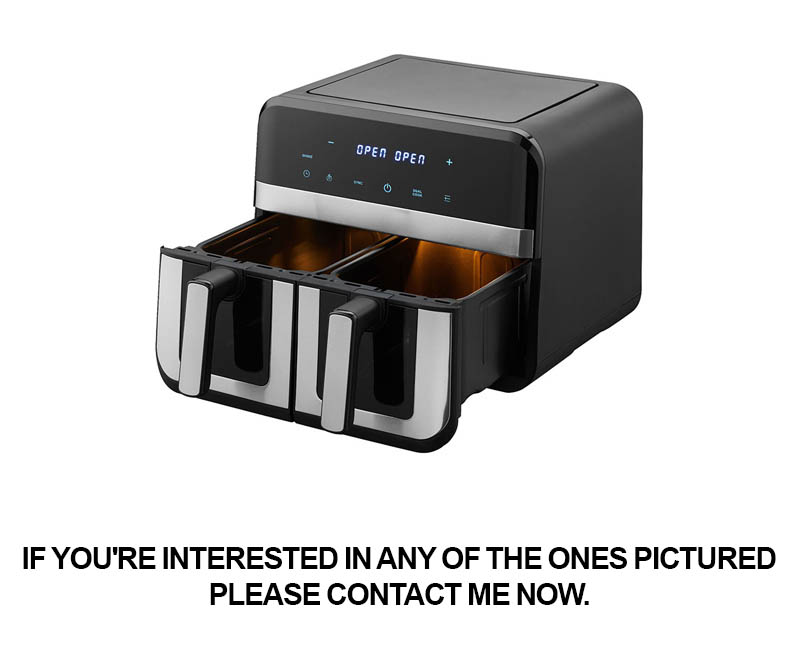
In the ever-evolving landscape of kitchen appliances, air fryers have emerged as a staple, offering a healthier alternative to traditional frying methods. As the demand for these versatile gadgets continues to soar, innovative designs are at the forefront of driving the future of air fryers. From sleek aesthetics to cutting-edge technology, let’s explore the key elements that are shaping the next generation of air fryers.
The integration of smart technology is revolutionizing the way we interact with air fryers. Modern designs often feature touchscreens, allowing users to control settings with a simple tap or swipe. This not only enhances the user experience but also ensures precision in cooking times and temperatures, resulting in consistent and delicious results every time.
Another innovative design trend is the focus on compact and space-saving units. As urban living spaces become more limited, air fryers that can be easily stored or even integrated into other kitchen appliances are becoming increasingly popular. Some models come with foldable legs or are designed to fit snugly under cabinets, making them perfect for small kitchens or anyone looking to maximize space.
Eco-friendly materials are also gaining traction in the design world. Recyclable plastics and sustainable materials are being used to construct air fryers, not only reducing the environmental impact but also appealing to eco-conscious consumers. These sustainable designs often carry certifications that confirm their eco-friendliness, making them a standout choice for those who prioritize sustainability.
Safety features are being elevated in air fryer design, too. New models often include automatic shut-off functions to prevent overheating, child locks to safeguard against accidental use, and non-toxic coatings on surfaces that come into contact with food. These features not only enhance the longevity of the appliance but also provide peace of mind for users.
Interactive features such as Bluetooth connectivity are making their way into air fryers, allowing users to monitor and control their appliances remotely via smartphones. This integration with smart devices means users can start their cooking while still at work, or even check the progress of their meal while on the go.
Customization is another area where air fryer designs are pushing boundaries. Modular designs that allow users to add different accessories, such as oven roasting baskets or dehydrator racks, can transform a single air fryer into a multi-functional kitchen tool. This versatility is particularly appealing to those who love to experiment with their cooking but don’t want to clutter their kitchen with multiple appliances.
Energy efficiency is a cornerstone of innovation in air fryer design. Newer models are being engineered to use less power while maintaining high cooking performance. This not only saves money on electricity bills but also contributes to a greener footprint.
Aesthetics are playing a bigger role in air fryer design as well. The once utilitarian appliance is now a kitchen accessory that can be a conversation starter. Colorful and stylish designs are becoming more common, appealing to those who want their kitchen gadgets to match their personal style.
Innovation in air fryer design isn’t just about making the appliances more convenient or efficient; it’s also about making them more accessible. Designs that cater to individuals with disabilities or special needs are emerging, featuring larger buttons, adjustable controls, and ergonomic grips that make air frying easier and safer for everyone.
As the market continues to grow, manufacturers are looking for new ways to differentiate their products. This includes unique features like customizable cooking programs, where users can create their own recipes and save them for future use. The ability to tailor the appliance to individual preferences is a significant step forward in the world of air fryers.
The future of air fryers is not just about cooking technology; it’s about the entire user experience. From the initial design phase to the final product, the emphasis is on creating appliances that not only meet but exceed consumer expectations. Whether it’s through smart technology, sustainable materials, or thoughtful design, the air fryer is poised to become an indispensable part of modern kitchens.
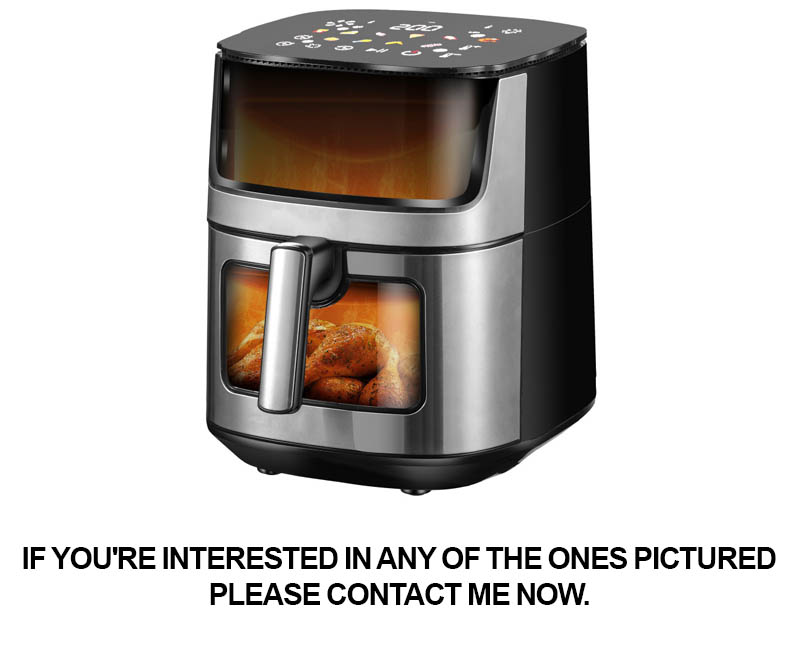
Air fryers have revolutionized the way we cook, and the technology behind them continues to evolve at a rapid pace. Here’s a look at some of the latest trends shaping the air fryer technology landscape:
The integration of smart technology is becoming increasingly common in air fryers. These smart appliances can be controlled via smartphone apps, allowing users to monitor cooking times, temperatures, and even recipes from anywhere. The ability to program and adjust settings remotely ensures that your food is perfectly cooked, even when you’re not at home.
Energy efficiency is a growing concern for consumers and manufacturers alike. Newer models of air fryers are designed to use less electricity while still delivering the same cooking performance. This not only helps reduce energy bills but also contributes to a more sustainable cooking experience.
One of the standout trends in air fryer technology is the focus on health and wellness. As awareness of the benefits of air frying over traditional frying methods grows, manufacturers are responding by creating air fryers that can cook a wider variety of foods with minimal oil. This includes healthier cooking options for vegetables, meats, and even desserts.
The compactness of air fryers has also been a point of innovation. Newer models are designed to be sleeker and more space-saving, making them perfect for small kitchens or urban living spaces. Some air fryers can even be stacked or tucked away in a drawer, offering a discrete cooking solution.
The ability to cook a variety of dishes in one appliance is becoming more sophisticated. Modern air fryers are often equipped with multiple cooking functions, such as dehydrating, roasting, and even baking. This versatility means that users can rely on a single device for a wide range of culinary tasks.
Safety features are also being prioritized in air fryer technology. New models come with features like automatic shut-off, which turns off the appliance if it’s left unattended or if the temperature reaches a dangerous level. Some even have cool-touch exteriors to prevent accidental burns.
Another trend is the inclusion of non-stick coatings that are not only durable but also PFOA-free, addressing health concerns related to traditional non-stick surfaces. These coatings ensure that food releases easily and that the fryer is easy to clean.
The rise of air fryers with digital displays and touch controls has made the cooking process more intuitive. Users can easily select their desired cooking mode and temperature, and some models even come with LED lights that indicate cooking progress.
In terms of design, air fryers are now available in a range of colors and finishes, from classic black and white to bold reds and blues. This allows consumers to choose a model that complements their kitchen decor.
The use of eco-friendly materials is also gaining traction. Some manufacturers are using recycled materials for their air fryers, and others are focusing on the recyclability of their products at the end of their life cycle.
Lastly, there’s a trend towards air fryers that can be used as part of a larger kitchen ecosystem. Some models can be integrated with smart home systems, while others can be paired with other kitchen appliances to create a seamless cooking experience.
These trends reflect the ongoing commitment to innovation in the air fryer market, ensuring that this popular kitchen appliance continues to evolve and improve with each new model.

In today’s competitive market, the role of mold making services in air fryer production cannot be overstated. These services are the backbone of ensuring that each air fryer unit is not only functional but also efficient and cost-effective. Here are some of the key benefits that come with partnering with a company that specializes in mold making for air fryers:
Precision and QualityMold making services are crucial for achieving the precision and quality required in air fryer production. These molds are designed with intricate details that ensure every part fits perfectly, reducing the risk of leaks or malfunctions. The quality of these molds directly impacts the longevity and performance of the air fryer, making them an indispensable part of the manufacturing process.
Customization and VersatilityOne of the standout benefits of working with a mold making service is the ability to customize designs. Companies can create molds that cater to specific market needs or unique product features. Whether it’s a different size, shape, or even a specialized cooking element, mold making allows for a high degree of versatility, enabling manufacturers to stay ahead of the curve in a rapidly evolving market.
Efficiency and Cost-EffectivenessEfficiency is key in air fryer production, and mold making services play a pivotal role in this aspect. High-quality molds can produce parts more quickly and with fewer errors, reducing production time and costs. This not only improves the bottom line but also allows for faster response to market demands and potential recalls, ensuring customer satisfaction and brand reputation.
Innovation and DevelopmentInnovation is at the heart of progress, and mold making services are instrumental in driving this forward. By creating molds for new and improved air fryer designs, manufacturers can introduce products that are not just better but also more innovative. This can lead to new features, such as enhanced heating elements, non-stick coatings, or even smart technology integration, all of which can set a brand apart from its competitors.
Durability and ReliabilityThe durability of an air fryer is heavily influenced by the quality of its molds. A robust mold ensures that the parts are strong and reliable, capable of withstanding the rigors of everyday use. This reliability is not just a selling point but also a critical factor in customer satisfaction and repeat business.
Regulatory ComplianceIn the air fryer industry, compliance with safety and quality standards is non-negotiable. Mold making services help manufacturers adhere to these regulations by ensuring that every part meets the required specifications. This compliance is essential for avoiding costly legal issues and maintaining a company’s good standing in the market.
SustainabilityWith the growing emphasis on sustainability, mold making services can also contribute to environmentally friendly production practices. By producing molds that optimize material usage and reduce waste, manufacturers can not only reduce their carbon footprint but also appeal to eco-conscious consumers.
ScalabilityAs a company grows and its product line expands, scalability becomes a key concern. Mold making services offer the flexibility to scale production up or down as needed, ensuring that the manufacturing process can keep pace with market demands without compromising on quality.
Technical ExpertisePartnering with a company that offers mold making services means gaining access to a team of experts. These professionals understand the intricacies of air fryer design and manufacturing, providing valuable insights and advice that can lead to better products and processes.
Long-Term PartnershipsA strong relationship with a mold making service can lead to long-term partnerships that benefit both parties. Over time, the mold maker can gain a deeper understanding of the manufacturer’s needs, leading to even more efficient and tailored solutions.
In summary, the benefits of partnering with a company offering mold making services in air fryer production are numerous. From precision and customization to efficiency and innovation, these services are a cornerstone of modern manufacturing, helping to ensure that air fryers not only meet consumer expectations but exceed them.
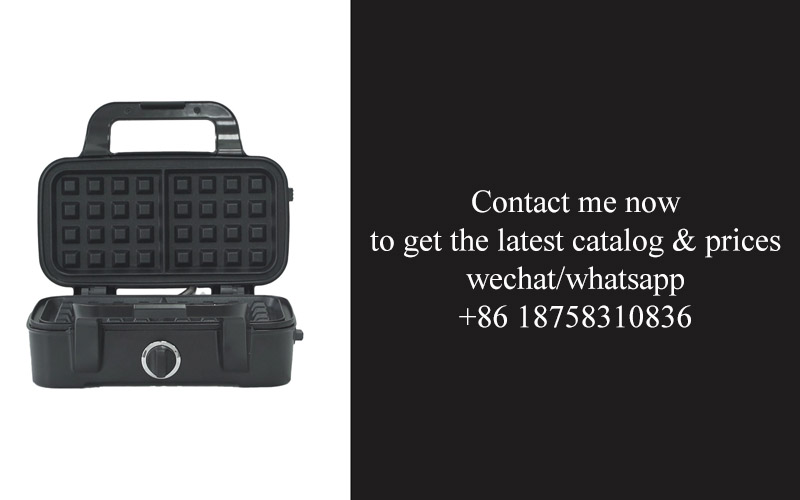
In the world of OEM air fryer production, there are several case studies that highlight the success of innovative brands and their partnerships with mold-making service providers. These stories showcase the journey from concept to market, and the key factors that contributed to their success. Let’s delve into a few notable examples.
One such case is the story of EcoFry, a company known for its eco-friendly air fryers. They partnered with a mold-making service to create a line of air fryers made from sustainable materials. The molds were meticulously designed to ensure that the air fryers were not only eco-conscious but also functional and aesthetically pleasing. EcoFry’s commitment to sustainability resonated with consumers, leading to a surge in sales and a strong brand reputation.
Another example is the launch of SmartChef’s line of smart air fryers. The company collaborated with a mold-making service to develop a series of fryers equipped with advanced technology. The molds were crafted to integrate the latest features, such as Wi-Fi connectivity, voice control, and smart recipes. This partnership allowed SmartChef to bring a cutting-edge product to market, which quickly became a favorite among tech-savvy consumers.
The brand NewAir had a successful launch with their retro-styled air fryers, thanks to the precision of their mold-making service. The molds were designed to capture the essence of classic kitchen appliances while offering the benefits of modern air frying technology. This blend of nostalgia and innovation appealed to a wide audience, resulting in a hit product that has since become a staple in many homes.
In the case of Chef’s Choice, the company sought to differentiate itself by focusing on health and wellness. They partnered with a mold-making service to create air fryers with detachable baskets and non-stick surfaces. The molds were developed to ensure that the fryers were easy to clean and maintain, which was a significant selling point. Chef’s Choice’s air fryers became a popular choice for those looking to incorporate healthier cooking methods into their diet.
The brand GoGreen Air Fryers also experienced success through their partnership with a mold-making service. They aimed to cater to consumers who were conscious of their kitchen space and energy consumption. The molds were designed to create air fryers that were compact yet powerful, with energy-saving features. This approach to product design resonated with a demographic that valued efficiency and eco-friendliness.
One more case to consider is the launch of ChefPro’s air fryers, which were designed with an emphasis on durability and versatility. The mold-making service was crucial in creating a fryer that could withstand high temperatures and various cooking conditions. ChefPro’s fryers were not only robust but also visually appealing, with sleek designs that caught the eye of consumers looking for a high-quality appliance.
Each of these case studies underscores the importance of a strong partnership between an OEM air fryer manufacturer and a mold-making service. From EcoFry’s sustainable materials to SmartChef’s smart features, the role of precise molds in creating successful products cannot be overstated. These examples show how the right design and engineering can lead to market dominance, customer satisfaction, and a brand’s long-term success in the competitive air fryer market.

In the ever-evolving landscape of the air fryer industry, data plays a pivotal role in guiding decisions, shaping strategies, and ultimately influencing the trajectory of market trends. From consumer preferences to production efficiency, here’s how data is at the heart of the air fryer revolution.
Consumer Insights and PreferencesUnderstanding what consumers want is crucial in the air fryer market. Data analytics allows manufacturers to gather and analyze information on purchasing habits, usage patterns, and customer feedback. This insight is invaluable for tailoring products to meet specific needs, whether it’s incorporating health-conscious features or enhancing user convenience.
Market Analysis and ForecastingData-driven market analysis provides a clear picture of the air fryer industry’s current state and future potential. By examining sales trends, market share, and growth rates, companies can predict future demand and adjust their production and marketing strategies accordingly. This foresight is essential for staying competitive and capitalizing on emerging opportunities.
Product Development and InnovationData-driven insights can fuel innovation in air fryer design and functionality. By analyzing consumer data, manufacturers can identify gaps in the market and develop new features that address these needs. For instance, data might reveal a growing preference for air fryers with programmable settings or those that offer faster cooking times, prompting manufacturers to invest in research and development to meet these demands.
Supply Chain OptimizationEfficient supply chain management is vital for the air fryer industry. Data analytics can help streamline operations by optimizing inventory levels, reducing lead times, and minimizing waste. By tracking production cycles, shipping schedules, and supplier performance, companies can ensure a smooth flow of products from manufacturers to consumers.
Regulatory Compliance and SafetyData is also crucial for ensuring compliance with safety standards and regulations. By monitoring product performance and consumer feedback, manufacturers can quickly identify and address any potential safety issues. Data analytics can help predict and prevent recalls, thereby protecting both the company’s reputation and consumer trust.
Customer Experience EnhancementCollecting and analyzing customer data can significantly enhance the overall customer experience. From personalized marketing campaigns to targeted after-sales support, data allows companies to offer a more tailored and responsive service. For example, data on customer satisfaction can be used to improve product design or customer service processes.
Competitive AnalysisIn the air fryer market, staying ahead of competitors requires a keen understanding of the competitive landscape. Data analytics enables companies to track competitors’ strategies, pricing, and product offerings. This information can be used to make informed decisions about pricing, marketing, and product differentiation.
Sustainability and Environmental ImpactAs consumers become more environmentally conscious, data is being used to evaluate the sustainability of air fryer production and usage. By analyzing the energy consumption and carbon footprint of different models, manufacturers can develop more eco-friendly products that appeal to environmentally conscious consumers.
Global Market TrendsThe air fryer market is not confined to any single region; it’s a global phenomenon. Data allows companies to identify trends and opportunities in different markets, enabling them to adapt their strategies for international expansion. For instance, data might show that there’s a surge in demand for air fryers in certain countries due to cultural shifts towards healthier cooking methods.
In summary, data is a cornerstone of the air fryer industry, influencing everything from product design to customer satisfaction and market strategy. By harnessing the power of data analytics, companies can make informed decisions, innovate, and stay ahead in a rapidly evolving market.
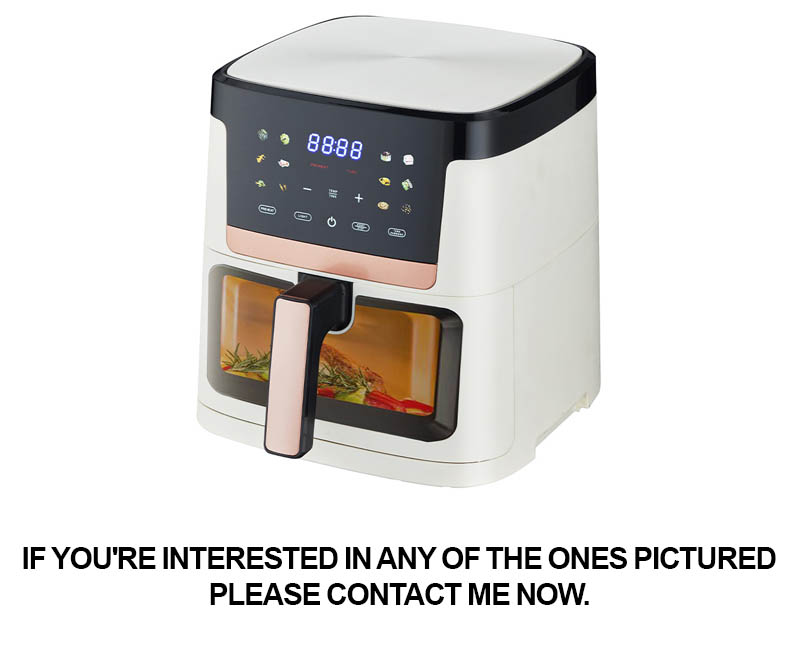
Navigating through the myriad of OEM air fryer manufacturers can be daunting. From quality assurance to production timelines, there are several factors to consider. Here’s a breakdown of what to look for to ensure you choose the right partner for your air fryer manufacturing needs.
Understanding Production CapabilitiesQuality starts with the production floor. Look for manufacturers that can demonstrate their capabilities in mass-producing air fryers. This includes the machinery they use, the efficiency of their assembly lines, and their ability to scale up production to meet your demands.
Certifications and StandardsA reputable OEM air fryer manufacturer should have certifications that reflect their adherence to international standards. Look for ISO certifications, CE marks, and other regulatory approvals that ensure the safety and quality of the air fryers they produce.
Customization and InnovationYour brand needs a manufacturer that can bring your unique vision to life. Seek out companies that offer a high degree of customization, allowing you to tailor the design, features, and branding of the air fryers to align with your market strategy.
Supply Chain ManagementA robust supply chain is crucial for the timely delivery of your air fryer orders. Ensure that the manufacturer has a reliable supply chain that includes sourcing high-quality components, managing inventory, and minimizing lead times.
Quality ControlNo matter how advanced the technology, air fryers need to be reliable and safe. A good manufacturer will have a stringent quality control process in place, including regular inspections, testing, and adherence to industry standards.
Customer Support and ServiceFrom the initial inquiry to the final delivery, customer support should be a priority. A manufacturer that values long-term relationships will offer exceptional customer service, including technical assistance, after-sales support, and responsive communication.
Technology IntegrationAs air fryer technology evolves, it’s important to work with a manufacturer that stays ahead of the curve. Look for companies that integrate the latest technological advancements, such as smart features, energy efficiency, and sustainable materials.
Design and Engineering ExpertiseThe design and engineering of an air fryer can significantly impact its performance and market appeal. Choose a manufacturer with a team of experienced designers and engineers who can optimize the air fryer’s functionality and aesthetics.
Cost-EffectivenessWhile quality and reliability are paramount, cost-effectiveness should not be overlooked. Compare quotes from different manufacturers to find the best balance between quality and price. Keep in mind that the cheapest option may not always be the most cost-effective in the long run.
ScalabilityYour business may grow, and your manufacturing needs could expand. Ensure that the manufacturer you choose can scale their operations to accommodate increased production volumes without compromising on quality.
Long-Term RelationshipBuilding a partnership with an OEM air fryer manufacturer is about more than just a single order. Look for a company that is committed to building a long-term relationship, offering continuous improvement and support as your business evolves.
In conclusion, selecting the right OEM air fryer manufacturer involves a comprehensive evaluation of their production capabilities, certifications, customization options, supply chain, quality control, customer support, technological integration, design expertise, cost-effectiveness, scalability, and willingness to establish a lasting business relationship. By carefully considering these factors, you can ensure that your air fryer product meets the highest standards and successfully captures the market’s attention.
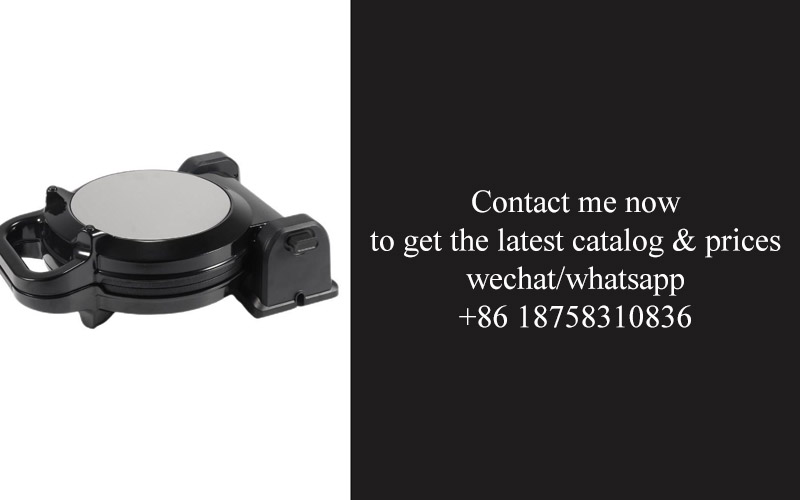
In recent years, the air fryer market has seen a surge in popularity, transforming the way we approach cooking and health. As this trend continues to grow, the role of mold making services has become increasingly crucial in shaping the industry. From enhancing product design to optimizing production processes, these services play a pivotal part in the success of OEM air fryer manufacturers. Let’s delve into the benefits and insights of this partnership.
The precision and quality of the molds used in air fryer production directly impact the functionality and lifespan of the final product. A well-crafted mold ensures that each air fryer is not only aesthetically pleasing but also performs efficiently and durably. By partnering with a company specializing in mold making services, OEM manufacturers gain access to cutting-edge technology and expertise that can elevate their products to new heights.
Customization is a key factor in the air fryer market, and mold making services enable manufacturers to create unique and tailored products. Whether it’s incorporating specific features, adjusting the size, or designing a distinctive shape, mold making allows for flexibility and innovation. This level of customization not only meets the diverse needs of consumers but also sets brands apart in a highly competitive market.
As the demand for air fryers continues to rise, so does the need for efficient production processes. Mold making services help streamline production by ensuring that molds are designed to maximize output while minimizing waste. This efficiency is particularly important in high-volume manufacturing, where time and cost savings are critical to staying competitive.
The quality of the materials used in air fryer production is also a significant factor. Mold making services can assist in selecting the right materials for molds, ensuring that they are not only durable but also compatible with the manufacturing process. This compatibility is crucial in maintaining the integrity of the air fryer’s structure and performance over time.
Innovation in air fryer technology is a constant drive, and mold making services are instrumental in bringing new ideas to life. Whether it’s integrating smart technology, improving energy efficiency, or creating eco-friendly models, the right molds can facilitate the design and development of these cutting-edge features. This ability to innovate helps manufacturers stay ahead of the curve and meet the evolving demands of the market.
The partnership between air fryer manufacturers and mold making service providers is not just about producing products; it’s about creating a collaborative environment that fosters continuous improvement. By working together, these companies can address issues such as material flow, cooling efficiency, and overall performance, leading to a better end product.
Case in point, a leading air fryer brand collaborated with a mold making service to develop a new model with a sleeker design and improved heat distribution. The mold making service was able to refine the design, ensuring that the air fryer not only looked modern but also cooked more evenly, enhancing user satisfaction.
The importance of mold making services in air fryer production extends beyond the manufacturing floor. These services also play a role in the supply chain, helping to ensure that parts and components are produced with the same level of precision. This consistency is essential for maintaining brand reputation and customer trust.
As the air fryer market continues to expand, the demand for mold making services is likely to increase. This growth is driven by several factors, including the need for more advanced features, the push for sustainability, and the rise of smart kitchen appliances. To capitalize on these opportunities, OEM air fryer manufacturers must prioritize partnerships with mold making service providers that can deliver high-quality, innovative solutions.
In terms of the future, the air fryer market is poised for even more innovation. With the increasing interest in health and wellness, consumers are seeking appliances that can provide healthier cooking options. Mold making services will be at the forefront of this trend, helping to develop new, efficient, and user-friendly air fryers that cater to these evolving preferences.
Additionally, as technology advances, the role of mold making services will evolve. The integration of advanced materials, such as metal alloys and composites, will require specialized mold making expertise. This will necessitate a closer relationship between mold makers and OEMs to ensure that these materials are utilized effectively in air fryer production.
In conclusion, the benefits of partnering with a company offering mold making services are clear. From enhancing product design and production efficiency to driving innovation and maintaining brand reputation, these services are an integral part of the air fryer industry’s success. As the market continues to grow, the importance of these partnerships will only increase, shaping the future of air fryer technology and design.